AI Educators are *lying* to you
A short reflection, AI hype, AI Experts and a big Surprise at the end!
A bold title, I know, but it’ll make sense and you’ll see why in a bit.
If you read 👆 and instantly thought about AI Influencers, we share the same thought.
To navigate this article more easily, here are the topics:
How I’ve started in AI
The purpose of this Newsletter
The fake overnight AI experts
What do they usually say?
Walk away with these tips
A Surprise!
Starting with a bit of History
During the DotCom bubble in the 2000s, when Internet companies were booming, I was five years old, probably playing outside somewhere, looking at the sky, and wondering, “Why don’t humans have three hands?” or why can’t “Tom catch Jerry” or any other philosophical question one might have at that age.
Fast forward to today, technical expertise in AI is the new Jerry, and Tom - well, there are a lot of Toms.
I’ve been working with AI since 2018, way before ChatGPT came out, and just a short time after the Attention Is All You Need (2017) paper was studied and dissected in AI research labs to build these new transformer-based generative models.
Before that, for two years I’ve been working as a Software Engineer where I’ve learned a few good foundations of developing software. I honestly think a shift from SWE to AI feels more natural, as AI Engineering, in a simplified form can be considered another complex layer on top of good SWE principles.
There are many in the same position who started as Software Engineers and built their AI skillset from fundamentals and up.
However, in this article, I want to touch on a slightly different topic, that is the boom of overnight AI experts who sell formulas on how to become one.
You might ask, “Alex, aren’t you doing the same thing, talking AI/ML Engineering?”
The difference is, there’s no overnight success in a career.
The purpose of this Newsletter
During my second year of college, I tried to valorify my time and dedicate a large chunk of it to self-learning. I’ve learned a bit of C++ to be able to work a few sketches in Unreal Engine, then learned a bit of C# to work with Unity.
Further, I’ve got internships doing Backend development, then touched a bit of frontend in Angular and so the journey continued. Slowly but surely, I’ve noticed I enjoy explaining and educating others and became a TA for the Programming class, and did that for 2 more years, while also working in parallel.
Long story short, I knew right then and there - educating and helping others is something I enjoy doing.
This Newsletter helps me do exactly that, now with 8 years of AI/ML expertise to talk from.
My goal is to help you shape and finetune your thinking and understanding when approaching any AI problem. No AI topic or concept is hard to implement, if you get the idea behind it.
For instance, if you want to get into AI Engineering, or understand AI Systems or build one on your own - I want that, one of the ideas that flow through your mind to be:
`Wait, this guy Alex talked about this problem on his Newsletter in clear terms.`
or
`Aha, I remember seeing such a system built step by step on Alex’s Newsletter. Let me get a refresher.`
or any other variation where you remember the practical and grounded advice I share in here, and get to really use and apply it.
Regardless if you’re an AI Engineer or want to get into AI, as long as you’re understanding, learning and applying tips and advice I talk about - I’ll be more than happy.
My goal is to clear the fluff around practical AI, showing you exactly what to expect.
And now, speaking of fluff, let’s get into the core of what I’ve wanted to talk about in this article.
The Overnight AI Experts
Guess what, nowadays it is easier than ever to cut corners; better yet, some even try to sell you the blueprint of cutting corners. The thing is, AI is now giving people the ability to promote themselves and build personal brands in ways that far exceed their actual expertise.
I’m active on here, writing a weekly newsletter for you. I’m also active on LinkedIn, where I post daily about AI/ML.
The Dunning-Kruger Effect I’ve noticed on Substack doesn’t compare with what’s on LinkedIn.
People overinflate what they actually know!
I get it, and I encourage everyone to share their work and thoughts. But the moment you’re confidently advertising a topic and, better yet, try to sell people on it while you’ve got little to no experience - that’s where the gap is.
Just like this picture below:
(by the way, the AI Expert which funnily is behind the Newbie Programmer, is taking it)
Not all the time, but pretty much whenever I check these people’s credentials, they’ve got little to do with AI or have built anything, let alone fixing a Data Pipeline or SSH’ing into a VM to debug PyTorch and NCCL bugs.
I must confess here, maybe I’m biased with that last sentence on PyTorch and NCCL, since it’s closely related to what I’m working on. Since all the AI Experts are pushing and advertisingg AI Agents, let’s change this sentence a bit.
I’ll reformulate with - how would one build a fallback mechanism for an Agentic workflow that failed to parse outputs to a Pydantic model, and it’s stuck in a loop? That thing consumes tokens and money, but what do I know?
Oh, and yes - the hype and the dopamine rush of getting likes and comments make it way worse.
Let’s see, grab some popcorn! 🍿
What do they say?
I’ve got a nice collection of three examples for you to prove the point. This is a small normalized subset of the evaluation dataset, sampled from a large pool of raw data samples. In other words, the lovely LinkedIn and the AI Influencers out there.
Here we go:
Guess that’s what I should do to master Agents, sounds confident 👇
Wait, wasn’t I supposed to learn about AI Agents in the previous post?
Six months, that’s a lot, expert-level stuff - I should listen 👇
Want to guess what the people who so confidently talk about AI Agents and AI have in common? You’re right, a big audience, paid bootcamps, and 🥁:
Tadaaa… ±1 year of experience as Data Scientists or Software Engineers.
Walk away with this
Before considering spending your money on courses, bootcamps and workshops - do a background check on the educators hosting them. Anyone could group resources together, use LLMs and others online articles to compose a course and then sell it to you.
In that, you basically pay to get structured lists of resources instead of actual, grounded advice one would gain in a real career. Don’t fall into these traps.
→ Someone selling you how to build production ready systems, and has worked as an intern for one year ? - completely ignore it.
→ Someone selling you how to build AI projects and half of the course focuses on javascript or no code tools? - run away.
To leave you with a few free resources that’ll actually teach you something, I’ve added these articles below.
1/ If you’re a new subscriber, and/or you’re looking for a few resources on AI/ML.
2/ These will help you learn to manage FastAPI State when serving AI models
3/ This unpacks the Zen of Python for clean code practices + with examples
4/ Learn about MCP core components, and build one from scratch using FastMCP
Finally - You’ll like this!
Recently, I’ve been teasing the idea of a FREE hands-on course on building an AI System, and then explaining it step by step.
The good news is, development is almost done!
And I’m doing this with
Doubling down on practical value and learning by building, I’ll leave here a sneakpeek , a small part of what the course will cover and what we’re going to build.
Super excited for this!
See you next Saturday!
All images are created by the author unless otherwise noted.




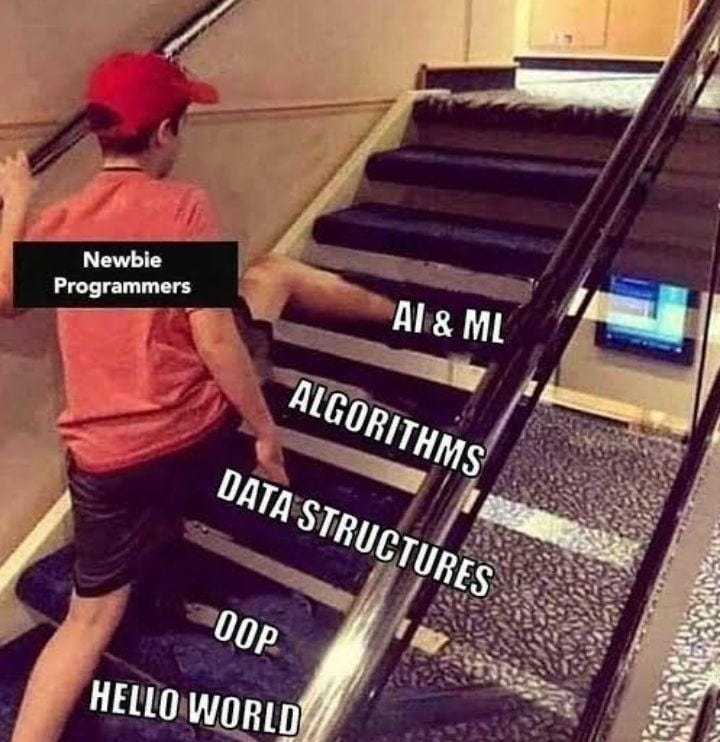
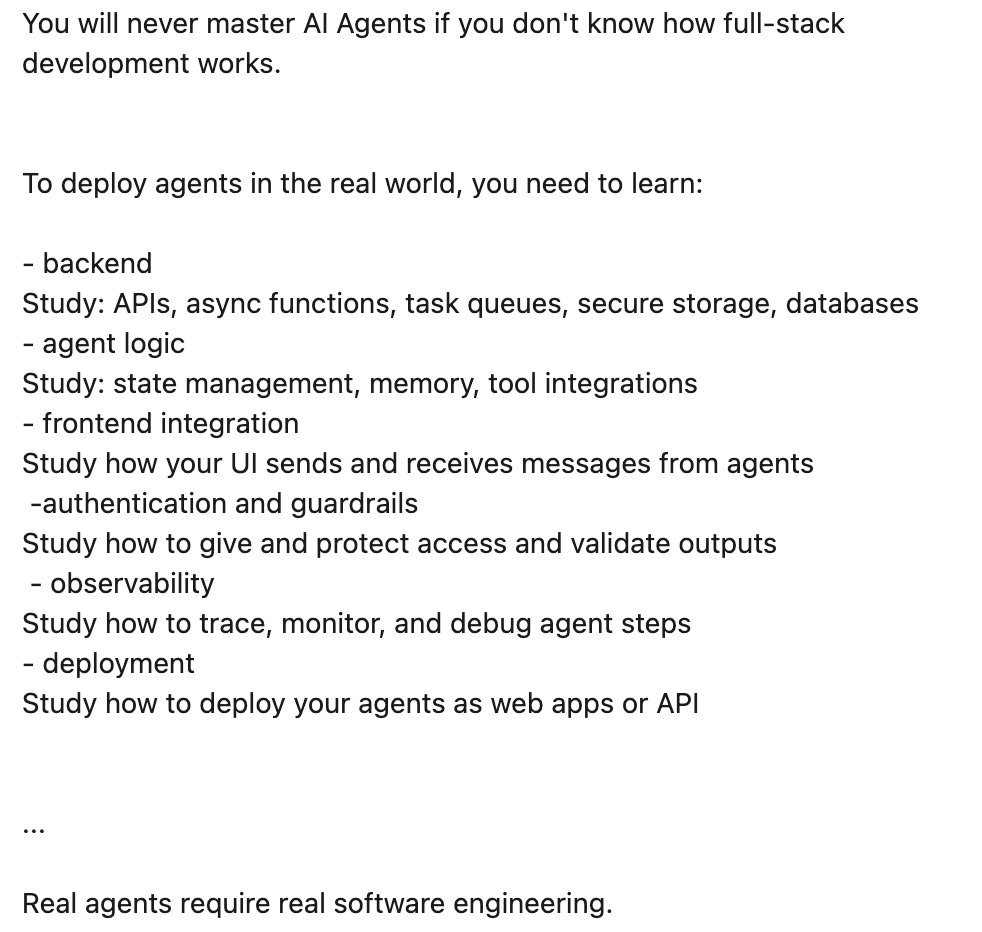
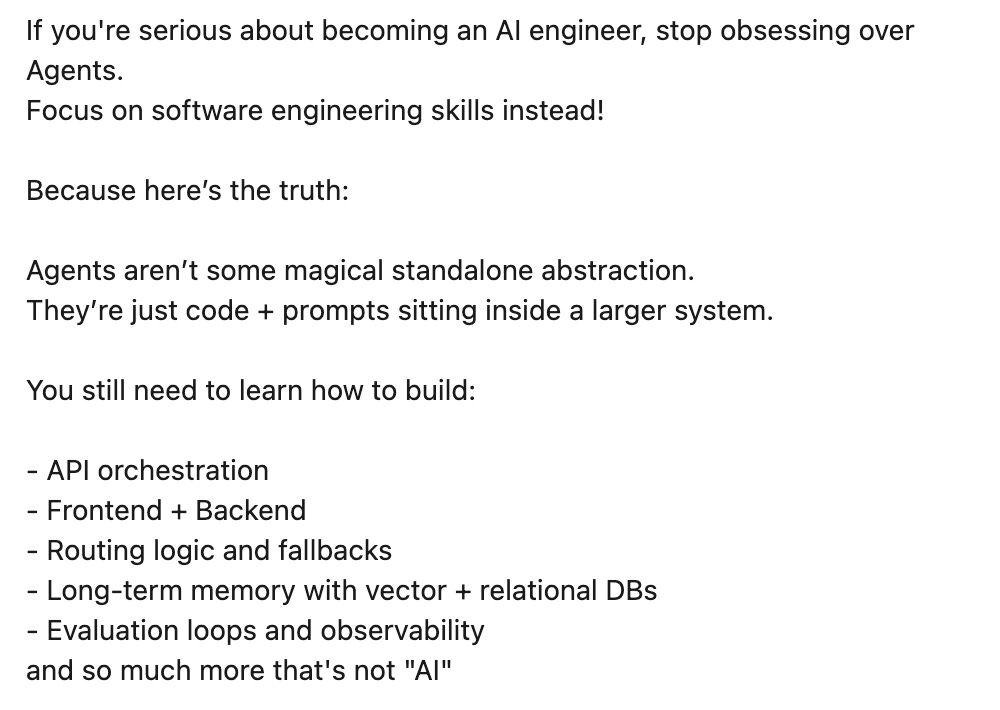
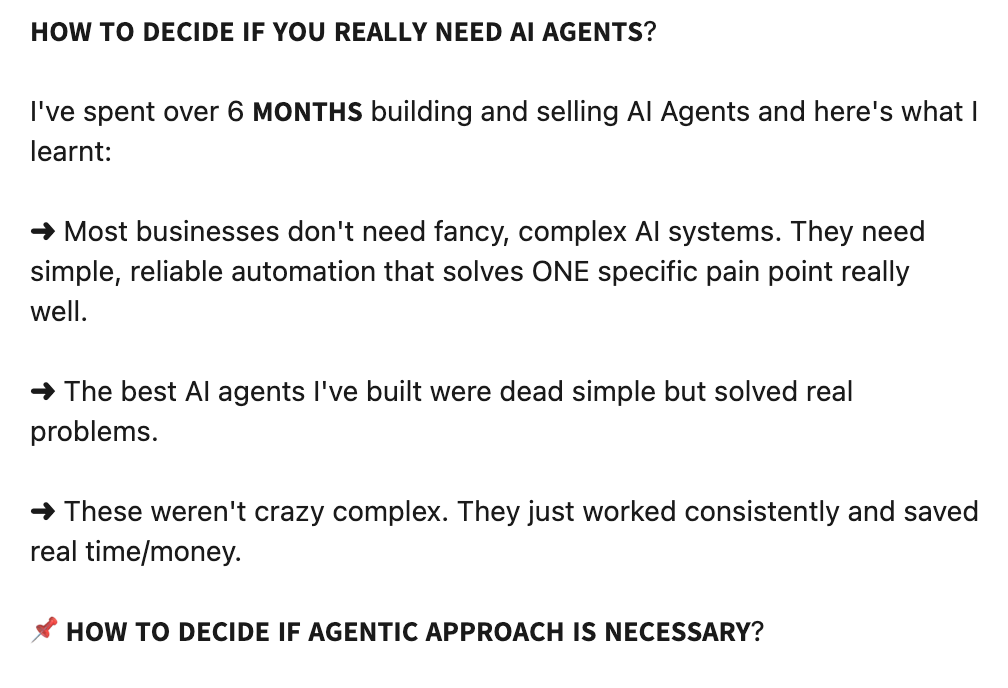
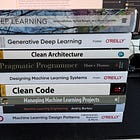
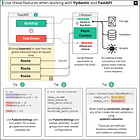
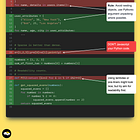

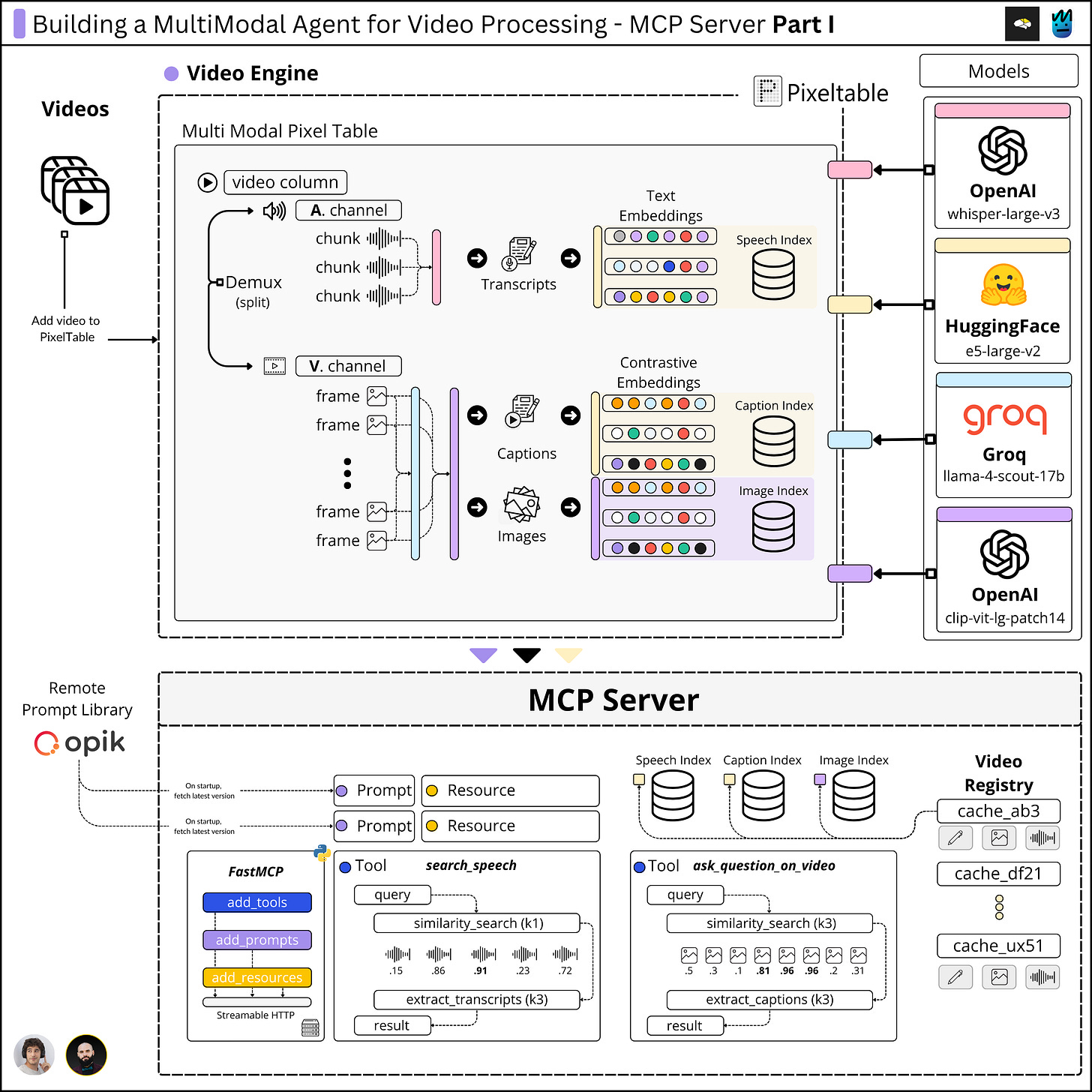
1. Loved this article man. Finally someone said it.
2. As for the course? Let’s COOK, Neural Bro 🔥